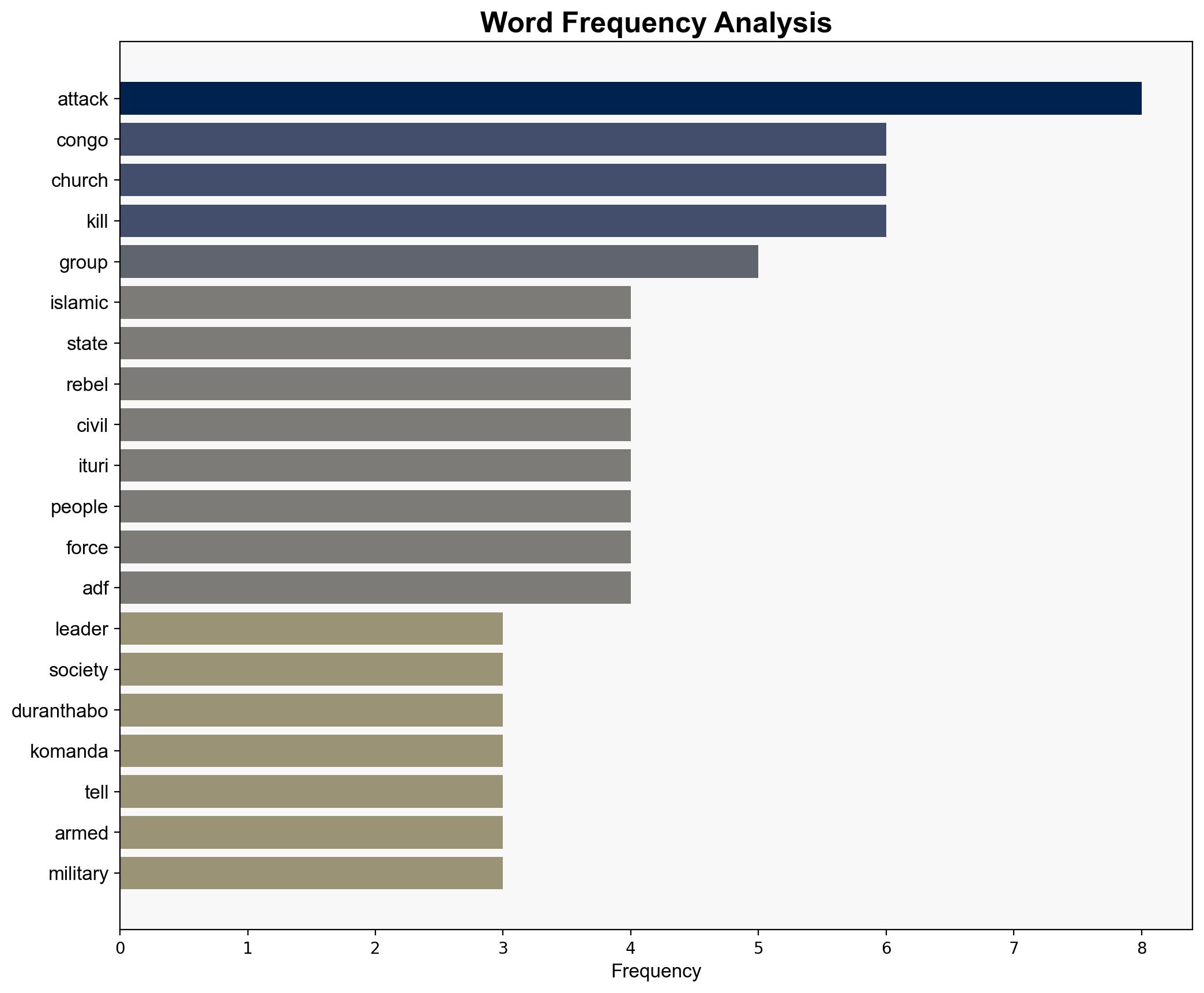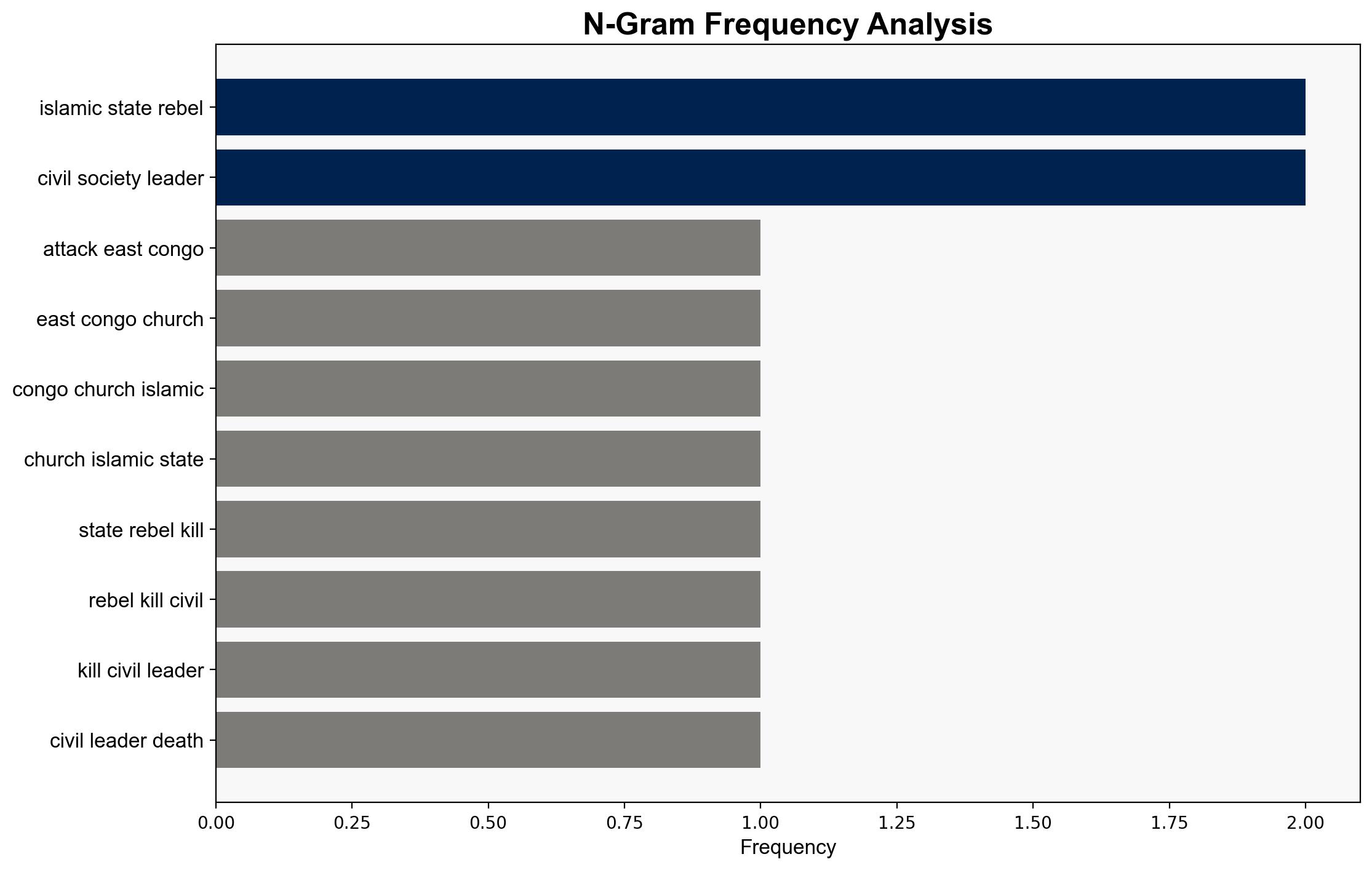Attack on east Congo church by ISIS-backed rebels kills at least 34 – CBS News
Published on: 2025-07-27
Intelligence Report: Attack on east Congo church by ISIS-backed rebels kills at least 34 – CBS News
1. BLUF (Bottom Line Up Front)
The attack on the church in eastern Congo, attributed to ISIS-backed rebels, highlights the persistent threat posed by the Allied Democratic Forces (ADF) in the region. The most supported hypothesis is that the ADF, leveraging its ties with ISIS, conducted the attack to destabilize the region and assert its influence. Confidence in this hypothesis is moderate due to the complex dynamics involving multiple armed groups. Recommended action includes increasing military presence and intelligence operations in the region to prevent further attacks and destabilization.
2. Competing Hypotheses
1. **Hypothesis A**: The ADF, with support from ISIS, conducted the attack as part of a broader strategy to destabilize the region and expand its influence.
2. **Hypothesis B**: The attack was primarily a local operation by the ADF, with limited or no direct operational support from ISIS, aimed at asserting control over local territories and resources.
Using the Analysis of Competing Hypotheses (ACH) 2.0, Hypothesis A is better supported due to the ADF’s known allegiance to ISIS and the pattern of similar attacks in the region. However, Hypothesis B cannot be entirely dismissed given the ADF’s historical operations independent of ISIS.
3. Key Assumptions and Red Flags
– **Assumptions**: It is assumed that the ADF’s allegiance to ISIS translates into operational support and strategic alignment. Another assumption is that the attack’s primary motive is regional destabilization.
– **Red Flags**: The lack of direct evidence linking ISIS to operational support raises questions about the extent of their involvement. Additionally, the possibility of other groups being involved or the attack being a result of local disputes is not fully explored.
4. Implications and Strategic Risks
The attack underscores the volatile security situation in eastern Congo, with potential for further violence and humanitarian crises. There is a risk of increased recruitment by extremist groups exploiting local grievances. Geopolitically, continued instability could strain regional relations and international interventions. Economically, persistent violence may deter investment and development in the region.
5. Recommendations and Outlook
- Enhance intelligence-sharing and coordination between regional and international security forces to monitor and counter ADF activities.
- Increase humanitarian aid and support to affected communities to mitigate recruitment by extremist groups.
- Scenario Projections:
- Best Case: Successful military interventions lead to a significant reduction in ADF activities and stabilization of the region.
- Worst Case: Escalation of attacks leads to widespread displacement and humanitarian crises, with potential spillover into neighboring countries.
- Most Likely: Continued sporadic attacks by the ADF, with intermittent successes in counter-terrorism efforts.
6. Key Individuals and Entities
– Dieudonne Duranthabo
– Lossa Dhekana
– Lt. Jules Ngongo
7. Thematic Tags
national security threats, counter-terrorism, regional focus, armed conflict, humanitarian crisis





